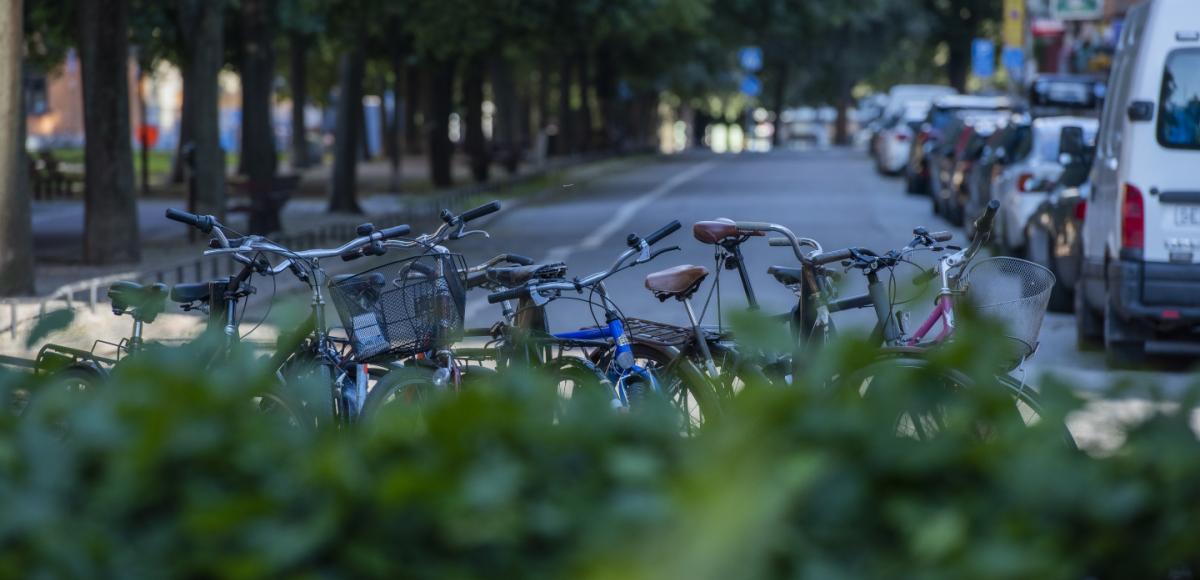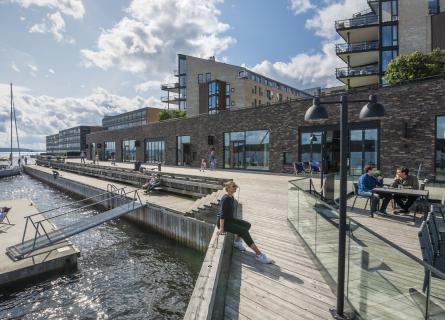
Key mobility findings of 2018
Future Cities Insight #7 Key mobility findings of 2018
For a few years now, the concept of Mobility as a Service (MaaS) has been a buzzword, especially for those of us with a passion for urban development and traffic planning. Put simply, it equates to a combination of services and modes of transport in a cohesive offer. The main purpose is to offer attractive alternatives to private car ownership, and increase usage of modes of transport that are sustainable in the long run.
In January, I gave a lecture predicting that this would be the year in which ideas would take the leap from the sketch pad into reality, and we would start witnessing the mobility of the future on the streets of today. So how did it go?
Electric scooters hit Sweden
In the autumn, the streets of Stockholm were suddenly inundated by VOI and Lime. Small electric vehicles like these are here to stay, and we will be seeing more of them. There are differing opinions as to what they actually add, and some think they mainly litter the streets. What trips do they replace? Probably not car journeys, but trips on foot and by bike, more likely – and us Swedes tend to need our everyday exercise.
Volvo Car Mobility loudly announced the imminent launch of the M mobility brand this summer – and we're all still eagerly awaiting this service, which promises to make it possible for more people to "move freely, meaningfully and sustainably". Volvo M has also extricated itself from its hometown and opened offices in central Stockholm, with Bodil Eriksson leading the way to the future.
Aimo might be third time lucky [1] as they introduce a free-floating car pool in Stockholm. In the autumn, 300 electric Renault Zoes, branded Aimo, were placed in and around Stockholm's inner city. The company is owned by Japanese conglomeration Sumitomo, who chose Sweden as its first launch market. Rumour has it that they aim to become a MaaS supplier and sell SL's public transport tickets, for instance.
Whim – a packaged travel service available as subscription and "pay as you go" - entered the scene globally in 2018. Whim was started in Finland a little over two years ago, backed by powerful financiers like Uber och Toyota. It is possible that they are aiming for a global roaming service, as founder Sampo Hietanen has stated from the outset. Whim currently exists in Helsinki, West Midlands (UK), Amsterdam and Antwerpen.
SL's route 549 in Barkarbystaden is the first regular self-driving bus service in the world. The buses provide increased access in areas where regular buses are too large, and offer an alternative to car ownership. In future, they will even pick up passengers from the doorstep! They do have staff onboard, but no steering wheel.
UbiGo was piloted in Gothenburg a few years ago, and the service is now being rolled out in Stockholm. It is a packaged travel service featuring public transport, electric car share, car rental, taxi and bike share, accessible via subscription and a mobile app. UbiGo extends its offer to private households, preferably in cooperation with housing associations, joint property units and property developers. First in line are a select few residential areas with a focus on sustainability and innovation. For households, a mobility subscription works out easier and cheaper that owning a car.
Västtrafik public transport and the municipal parking company of Gothenburg tried offering 450 select car parking customers the possibility to buy Västtrafik tickets via an app, to make it easier to combine driving with public transport.
And finally, an example from Denmark, where MinRejseplan was launched this year, featuring public transport, taxi, car rental, free-floating car share and rental bikes. The decision to take on a role as MaaS integrator is as refreshing as it is welcome.
So, how is 2019 looking, mobility-wise?
Next year, we are likely to see more mobility initiatives in mid-sized cities and rural areas. AFRY is involved in several.
As for myself, I will be following LIMA with great interest – a shared mobility service development project at the Lindholmen Science Park. Trollhättan and NEVS have announced that they intend to map people's transport behaviours, with the aim of decreasing car travel. Energikontor Sydost are creating new solutions to make it easier for the inhabitants of Blekinge County to combine various modes of transport, such as public transport and bike, and Västerbotten County is running an exciting initiative for sustainable mobility in rural areas, which I will be getting closely acquainted with.
However, what we will not see in the next year is people buying mobility services on a broad scale. Too few services have been comprehensively launched and reached enough extent, and finding profitable business models remains a challenge. If I could make a wish, I'd like to see a project with proper user focus. One which facilitates sustainable mobility and offers MaaS for that last kilometre. There are some excellent ideas already. After the holidays, let's discuss them over coffee!
Let's keep #MakingFuture!
Karolina Pamp-Sandgren, Strategist, Combined Mobility
[1] Car sharing company Car2Go, owned by Daimler, left Stockholm in November 2016. Drive Now, owned by BMW, left Stockholm in October 2018.




